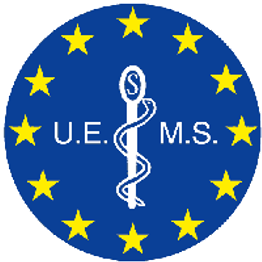CME Accredited Course

The The IVF Worldwide Virtual University of Reproductive Medicine - Drugs for Ovarian Stimulation and Pituitary Suppression, made available on https://www.ivfphysicianed.com/ and organized by IVF Worldwide, is accredited by the European Accreditation Council for Continuing Medical Education (EACCME) to provide the following CME activity for medical specialists.
Each medical specialist should claim only those credits that he/she actually spent in the educational activity. The EACCME is an institution of the European Union of Medical Specialists (UEMS). Only those e-learning materials that are displayed on the UEMS- EACCME website have formally been accredited.
Through an agreement between the European Union of Medical Specialists (UEMS) and the American Medical Association (AMA), physicians may convert EACCME credits to an equivalent number of AMA PRA Category 1 CreditsTM. Information on the process to convert EACCME credit to AMA credit can be found at www.ama-assn.org/education/earn-credit-participation-international-activities.
